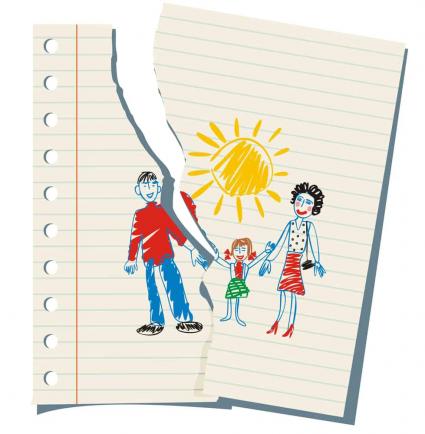
Watching children whose parents are going through a divorce is a difficult challenge for those close to one or both parents or who are in a position to see the children struggle with the separation. In this article, we are going to discuss three categories of people - grandparents and close blood relatives, close friends and teachers - and how they can help a child deal with divorce.
Grandparents: Meaning well versus making matters worse
Paternal and maternal grandparents often take a divorce personally. That is because grandparents are often not only invested in the future of their own adult children, but also that of their time with the grandchildren. Here are some "Do's" and "Do not's" for grandparents during a divorce.
Do treat your home like neutral territory.
Your home is not the place where the children should get further bombarded with talk of the divorce and either parent's faults or reasons for the marriage's break-up. Treat your home like a safe zone from the stress and anxiety.
Do not
disparage your son-in-law or daughter-in-law to the grandchildren.
In California, it is common for court orders to state that neither parent will disparage or speak negatively about the other parent or allow others to do so in the children's presence. Do so and you may not only cause additional stress to the children but you could end up on the wrong side of the law.
Do report abuse
If you reasonably suspect that your grandchildren are being physically or psychologically abused, consider reporting it to the proper authorities. If you are not certain, you may speak to an experienced attorney in your state who can guide you.
Do not
make false allegations of abuse or get caught up in exaggerated and reckless claims
In California, making false allegation of abuse can lead to the accusing parent losing custody of the children and monetary sanctions. If you become a party to such false allegations, you may be setting yourself up for a loss of rights to see your grandchildren and you may even be exposed, depending on your state's laws, to civil liability or sanctions.
Family and friends: Reassuring and listening
Blood relatives close to the situation and friends close to either parent or both have challenges similar to grandparents. Here are a couple of additional thoughts for this group.
Do reassure the children
Kids often speak what is on their mind and it is not unusual for a child to confide in someone they see on a regular basis, especially if this group has children of their own that socialize with the divorcing parents' kids.
In such situations, your emotional support, reassurances and the knowledge that the family and those close to the kids will always be there for them can help quell concerns about losing their support system. Depending on the age of the children, this discussion can be general to specific about how mom and dad's separation won't change how much both sides of the family and friends love them and will treat them.
If you have children of your own, consider whether educating them on the situation is wise so that your children don't inadvertently say something that comes across hurtful or inappropriate.
Do not
lie to the children.
Depending on children's ages, there are different effective ways to broach the topic of divorce. No matter which of them you choose, lying to them is not a wise option. Similar to grandparents, the children likely look up to you as a person of wisdom. They trust you and that trust has been earned through your years of life experience. The quickest way to lose that trust is to tell the children something you know is untrue, such as telling them that their parents will get back together if you know that is highly unlikely. There is a difference between positive reinforcement and deception.
Teachers - balancing parental instincts with duty
Teachers are in a tough spot when it comes to a student's parents' divorce. Many teachers are also parents of their own children. Some may have even gone through a separation or divorce or been close to a family member or friend who has. When a student is under a lot of stress or anxiety at home, it's not uncommon for him or her to lean on the teacher for guidance or support.
Do know your state's mandatory reporting laws.
Some states have mandatory reporting laws if someone like a teacher suspects abuse. If a child reports abuse to you, be sure to consult with the proper authorities and the channels provided to you within your school or district to discover your legal obligations.
Do know your school or district's policies.
Many schools or school districts have written policies on how teachers should deal with divorcing parents when it has an impact on the child's education.
Do engage in communication with both parents.
One way a teacher can support a child during his or her parent's divorce is to keep both parents informed of the child's progress.
For example, when a child's school work suffers, especially when it is out of character for the child, and there appears to be a connection between the child's struggles and the parents' divorce, the teacher may wish to engage both parents in constructive dialogue on the child's performance. Not only may the parents appreciate the input, but the teacher indirectly provides valuable support to the child by identifying the school related problems and helping the parents with solution focused communication.

